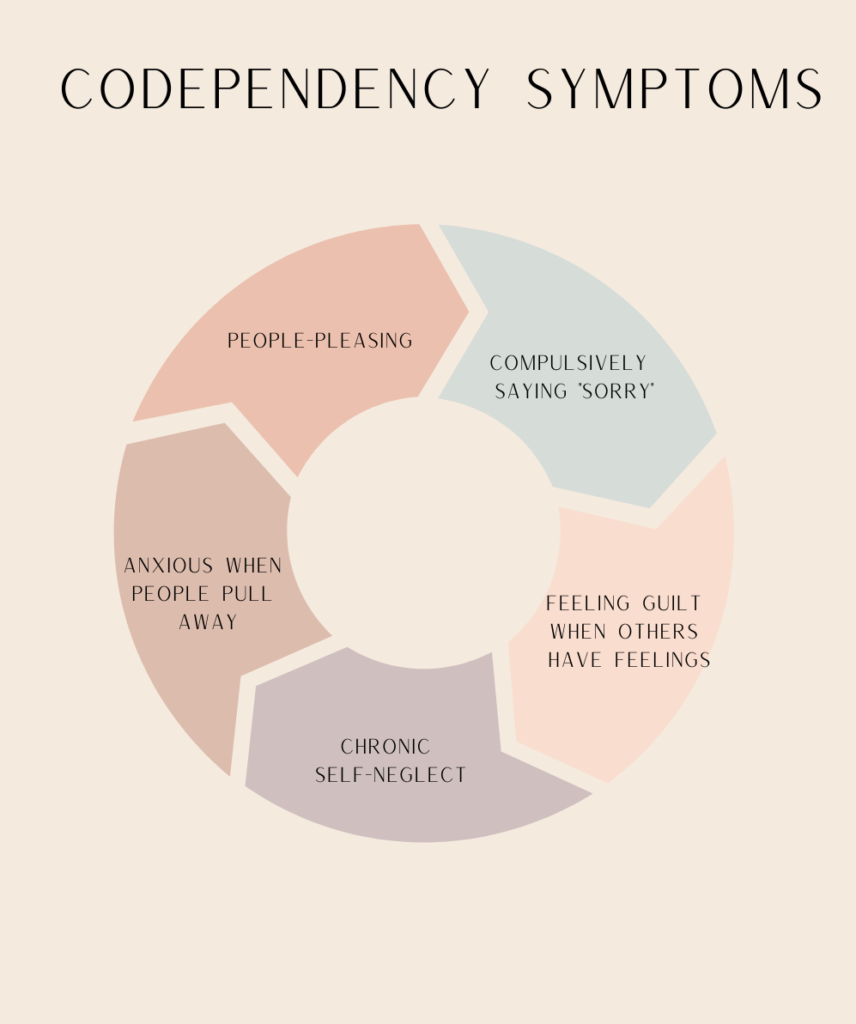In this blog post, we will explore the different types of codependency, as well as the causes and risk factors. We will also look at how to manage codependent symptoms in relationships, friendships, and at work. If you are concerned that you or someone you know may be suffering from codependency, please read on for more information.
Contents
Understanding Codependency
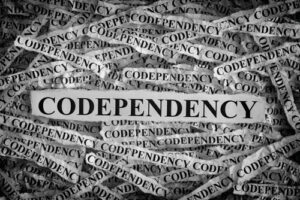
Codependency is a condition that is characterized by excessive reliance on others. This can manifest in different ways, but typically includes difficulty forming and maintaining healthy relationships.
Codependent people may have trouble communicating their needs, setting boundaries, or asserting themselves. They may also find it difficult to cope with change or stress.
Codependency Vs. Dependency
Codependency is not the same as a dependency.
- Dependency refers to a situation in which someone relies on another person for support or assistance. This is not necessarily unhealthy, and can even be beneficial in some cases.
- Codependency, on the other hand, is characterized by an unhealthy reliance on others that often leads to negative consequences.
Types of Codependency
There are four main types of codependency: emotional, financial, physical, and sexual.
- Emotional codependency is when someone relies on others for the validation of self-worth. They may have difficulty expressing their own emotions, and may instead rely on others to tell them how they should feel.
- Financial codependency is when someone relies on others for financial support. This can manifest in different ways but may include always asking others for money, or being unable to manage one’s finances.
- Physical codependency is when someone relies on others for physical support. This may include needing help with basic tasks such as bathing or dressing, or being unable to care for oneself.
- Sexual codependency is when someone relies on others for sexual gratification. This may include needing constant validation from others or engaging in risky or unhealthy sexual behaviors.
Causes And Risk Factors
Several factors can contribute to codependency.
- One of the most common is a history of trauma or abuse. This can lead to feelings of insecurity and low self-esteem, which can make it difficult to form healthy relationships.
- Other risk factors include growing up in a dysfunctional family, having a parent who was codependent, or being in a relationship with someone who is codependent.
Recognizing Codependency
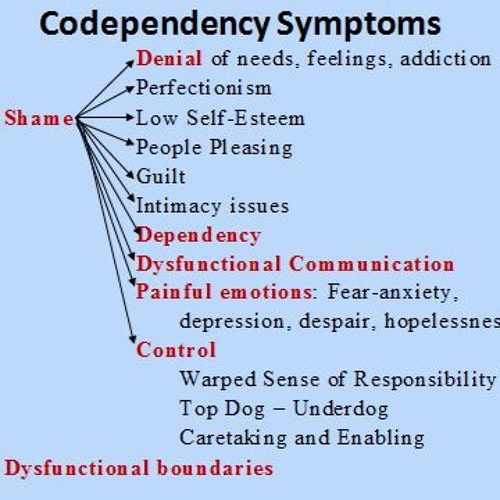
The symptoms of codependency can vary depending on the individual.
However, some common symptoms include:
- difficulty communicating needs,
- setting boundaries, or
- asserting oneself.
Other symptoms may include:
- feeling like one needs someone else to be happy,
- holding yourself responsible for others’ emotions, or
- feeling anxious and helpless when alone or doing things on your own.
Tests And Interviews For Codependency
If you think you might be codependent, there are some tests and interviews that can help to confirm it.
- One common test is the Relationship Questionnaire, which is a self-report measure that assesses codependent symptoms.
- Another option is the Codependency Interview Schedule, which is a structured interview that can be used to diagnose codependency.
NOTE: Interviews are also sometimes used to assess codependency. These typically involve questions about your relationships and how you interact with others.
Spotting Codependency
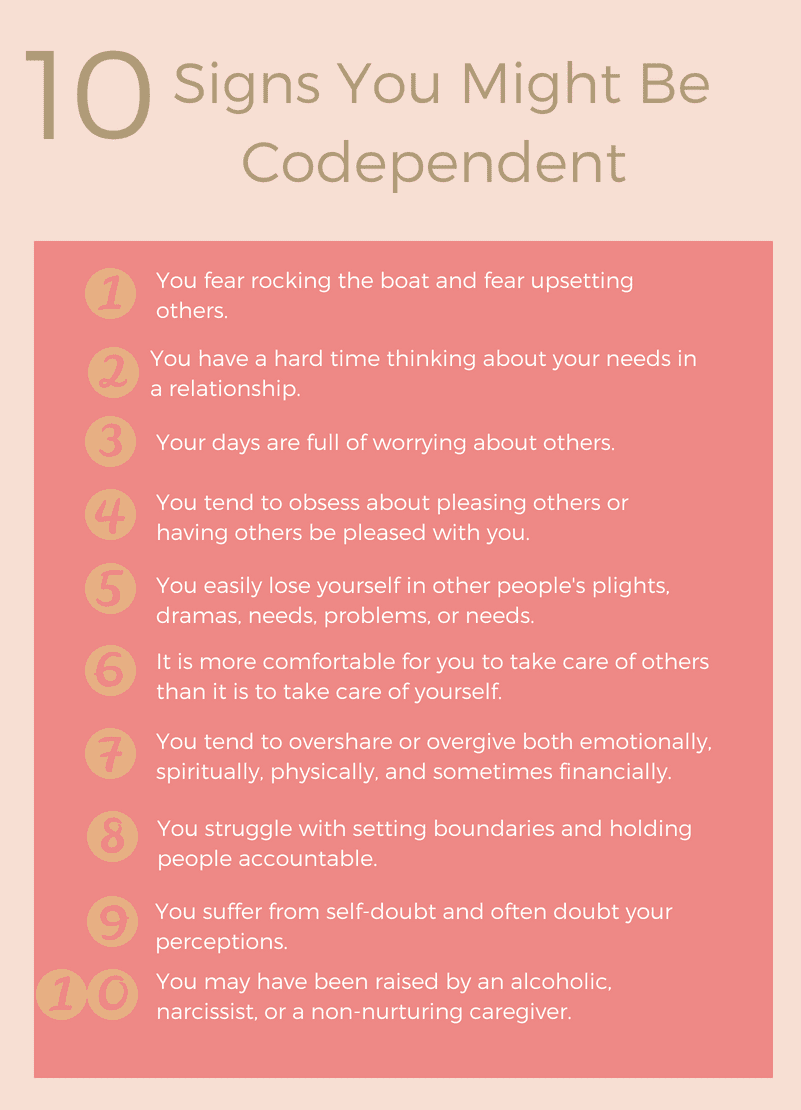
If you think you might be codependent, there are some signs to look out for.
- Do you have difficulty communicating your needs?
- Do you often feel like you need someone else to be happy?
- Have you found it difficult to set boundaries or assert yourself?
If so, you may be codependent.
In Relationships
Codependency can manifest in different ways in different relationships. In some cases, codependent individuals may find themselves in a relationship with someone who is abusive or has other issues. Other times, codependents may find themselves in a one-sided relationship, where they are always the one giving and the other person is always taking.
In Friendships
Codependency can also manifest in friendships. For example, a codependent individual may find themselves in a friendship where they are always the one giving and the other person is always taking. Or, a codependent individual may find themselves in a friendship where they feel like they need the other person to be happy.
In Workplace
Codependency can also manifest in the workplace. For example, codependent individuals may find themselves in a job where they feel like they need the approval of their boss or co-workers to be happy. Or, a codependent individual may find themselves in a job where they feel like they are always the one doing all the work and the other person is always taking the credit.
NOTE: Either way, codependency can be harmful to both parties involved.
Predicting Its Implications
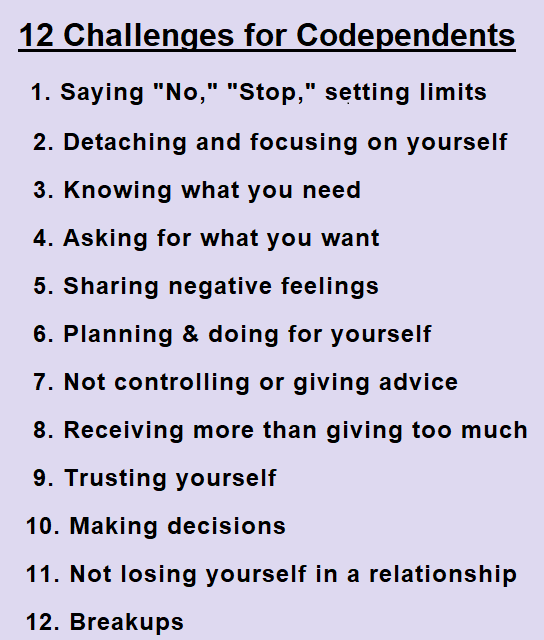
Codependency can have several implications, both for the individual and for the people they are in relationships with.
- For example, codependent individuals may find themselves in abusive or one-sided relationships. They may also find it difficult to assert themselves or set boundaries.
- For the individual, codependency can lead to low self-esteem, anxiety, and depression. It can also make it difficult to form and maintain healthy relationships.
- Additionally, codependents may feel anxious when they are alone or have difficulty communicating their needs. In this way, they can never be self-dependent.
Either way, codependency can be harmful to both parties involved.
Overcoming Codependency Symptoms
If you think you might be codependent, there are some things you can do to manage the symptoms.
One option is to seek therapy from a mental health professional.
- This can help you to understand your codependency and learn how to manage it.
Another option is to join a support group.
- This can provide you with support and advice from others who are dealing with codependency.
NOTE: You can also try some self-help tips to break from co-dependent relationships. However, it is sometimes difficult to end a codependent relationship, understand the root cause of your codependent pattern and effectively work on it, all at once. Therefore, we recommend seeking help and trying therapy, and reclaiming your forgotten self by successfully breaking free from the vicious cycle of codependent relationships at work, and in relationships.
Conclusion
There are a lot of codependent symptoms to be aware of. If you think you might be codependent, it’s important to trace the pattern and see how it manifests in your life. Recognizing codependency is the first step to managing its symptoms and implications. With self-awareness and help from professionals, you can learn healthy coping mechanisms to deal with codependency.
A Word From Therapy Mantra
Your mental health — Your psychological, emotional, and social well-being — has an impact on every aspect of your life. Positive mental health essentially allows you to effectively deal with life’s everyday challenges.
At TherapyMantra, we have a team of therapists who provide affordable online therapy to assist you with issues such as depression, anxiety, stress, workplace Issues, addiction, relationship, OCD, LGBTQ, and PTSD. You can book a free therapy or download our free Android or iOS app.
